Quotes & Sayings About Metacognition
Enjoy reading and share 8 famous quotes about Metacognition with everyone.
Top Metacognition Quotes

Several researchers demonstrate the ways people fail to label trauma as such or underreport traumatic experiences. In a sample of 1,526 university students, Rausch and Knutson (1991) found that although participants reported receiving punitive treatment similar to that of their siblings, they were more than twice as likely to identify their siblings' experiences as abusive as they were to label their own in this way. The authors reported that participants were likely to interpret parental treatment toward themselves but not parental treatment toward their siblings as deserved and therefore not abusive. Other studies similarly indicate that those reporting abuse experiences often do not demonstrate a metaconsciousness of having been abused (Goldsmith & Freyd, in press; Koss, 1998; Varia & Abidin, 1999; Weinbach & Curtiss, 1986).
KNOWING AND NOT KNOWING ABOUT TRAUMA: IMPLICATIONS FOR THERAPY (2004) — Jennifer J. Freyd
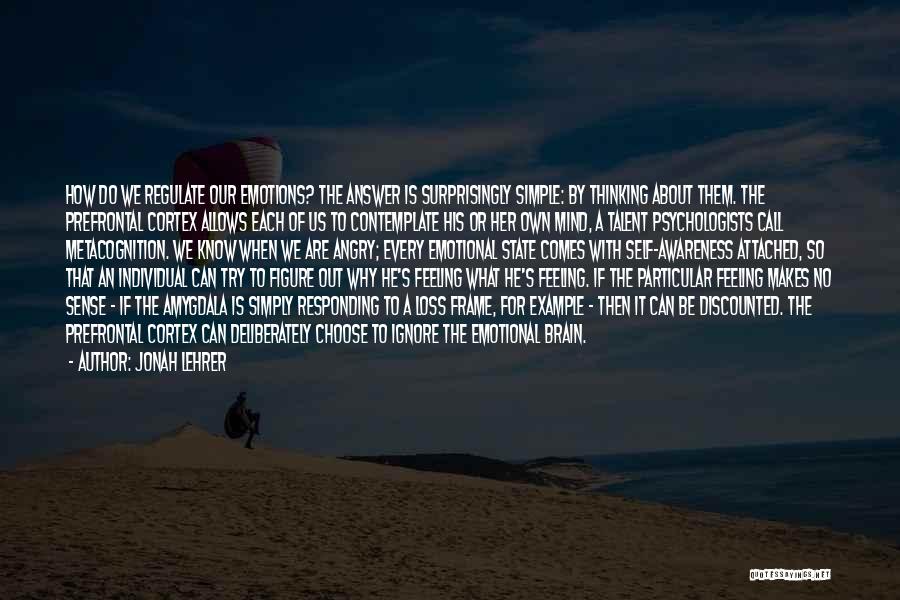
How do we regulate our emotions? The answer is surprisingly simple: by thinking about them. The prefrontal cortex allows each of us to contemplate his or her own mind, a talent psychologists call metacognition. We know when we are angry; every emotional state comes with self-awareness attached, so that an individual can try to figure out why he's feeling what he's feeling. If the particular feeling makes no sense - if the amygdala is simply responding to a loss frame, for example - then it can be discounted. The prefrontal cortex can deliberately choose to ignore the emotional brain. — Jonah Lehrer
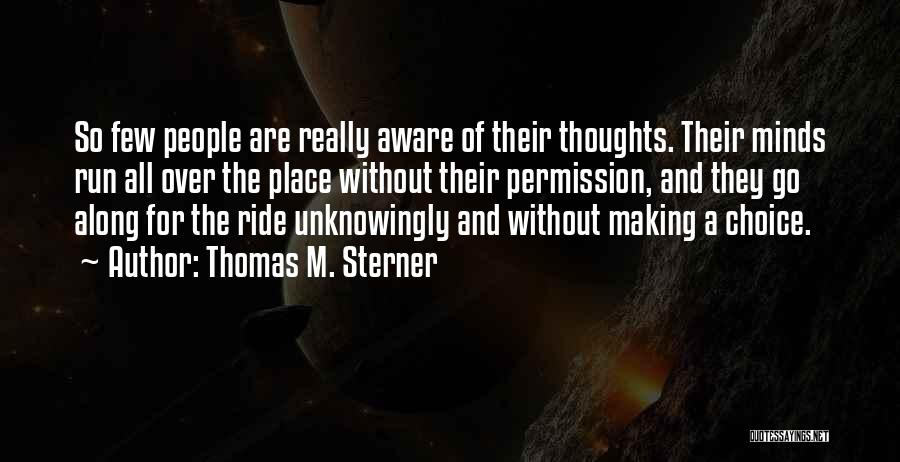
So few people are really aware of their thoughts. Their minds run all over the place without their permission, and they go along for the ride unknowingly and without making a choice. — Thomas M. Sterner

It all makes more sense when I'm out here alone," he smiled. "I can talk myself into anything. — Pat Conroy
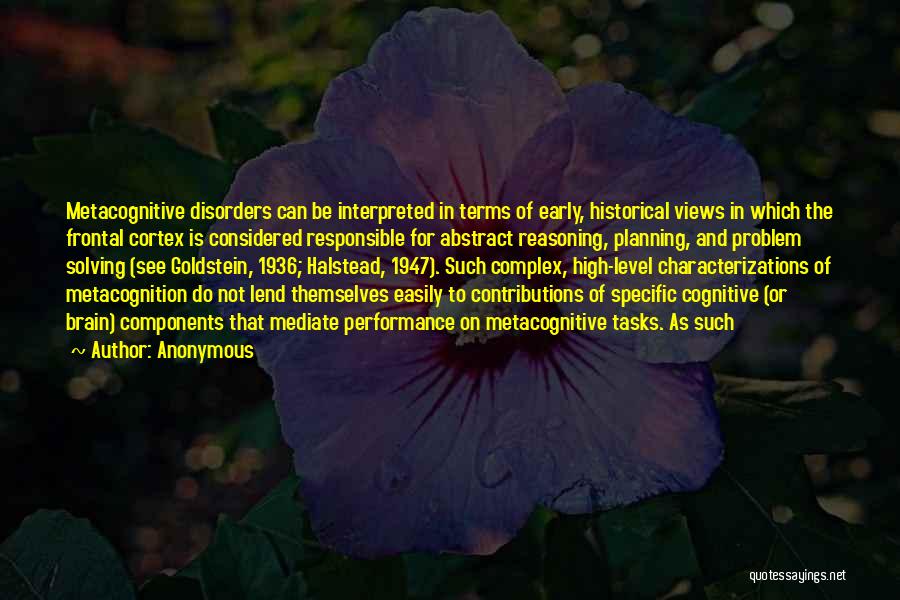
Metacognitive disorders can be interpreted in terms of early, historical views in which the frontal cortex is considered responsible for abstract reasoning, planning, and problem solving (see Goldstein, 1936; Halstead, 1947). Such complex, high-level characterizations of metacognition do not lend themselves easily to contributions of specific cognitive (or brain) components that mediate performance on metacognitive tasks. As such — Anonymous
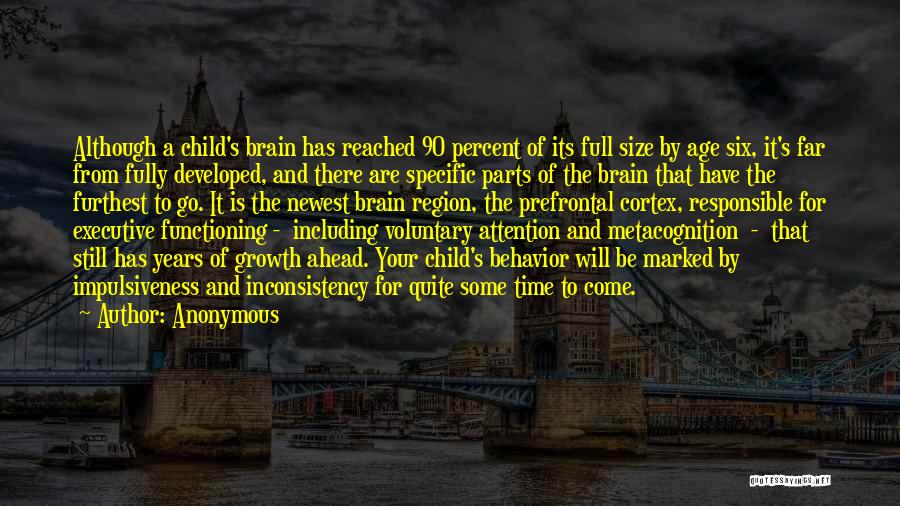
Although a child's brain has reached 90 percent of its full size by age six, it's far from fully developed, and there are specific parts of the brain that have the furthest to go. It is the newest brain region, the prefrontal cortex, responsible for executive functioning - including voluntary attention and metacognition - that still has years of growth ahead. Your child's behavior will be marked by impulsiveness and inconsistency for quite some time to come. — Anonymous
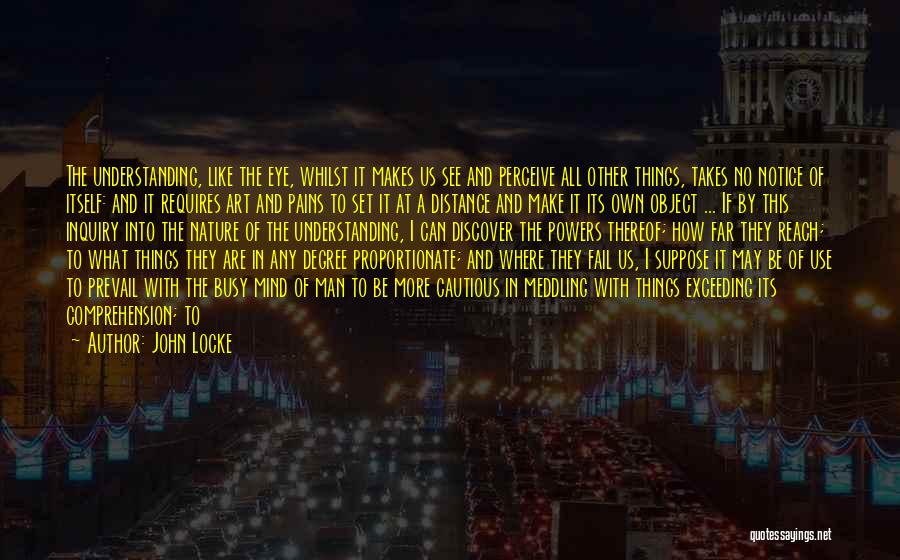
The understanding, like the eye, whilst it makes us see and perceive all other things, takes no notice of itself: and it requires art and pains to set it at a distance and make it its own object ...
If by this inquiry into the nature of the understanding, I can discover the powers thereof; how far they reach; to what things they are in any degree proportionate; and where they fail us, I suppose it may be of use to prevail with the busy mind of man to be more cautious in meddling with things exceeding its comprehension; to stop when it is at the utmost extent of its tether; and to sit down in a quiet ignorance of those things which, upon examination, are found to be beyond the reach of our capacities. — John Locke
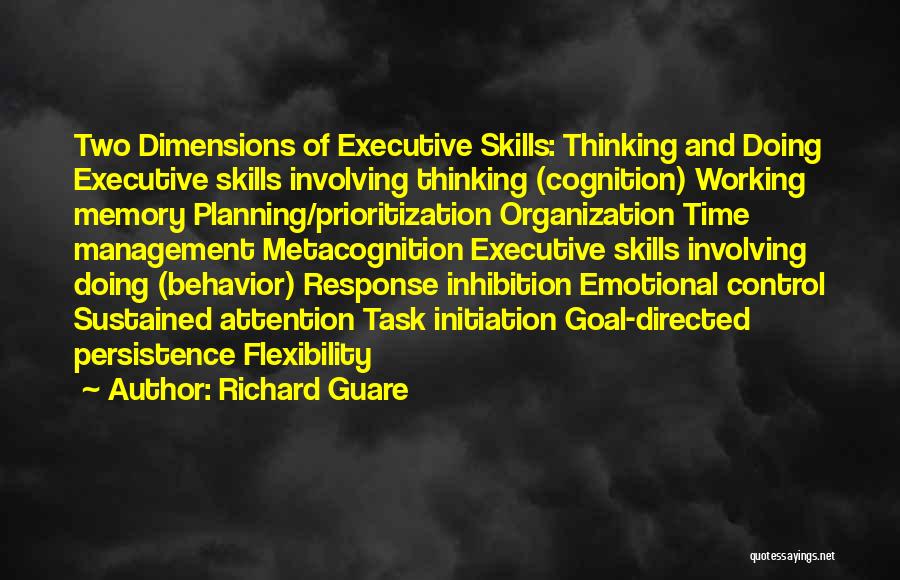
Two Dimensions of Executive Skills: Thinking and Doing Executive skills involving thinking (cognition) Working memory Planning/prioritization Organization Time management Metacognition Executive skills involving doing (behavior) Response inhibition Emotional control Sustained attention Task initiation Goal-directed persistence Flexibility — Richard Guare





